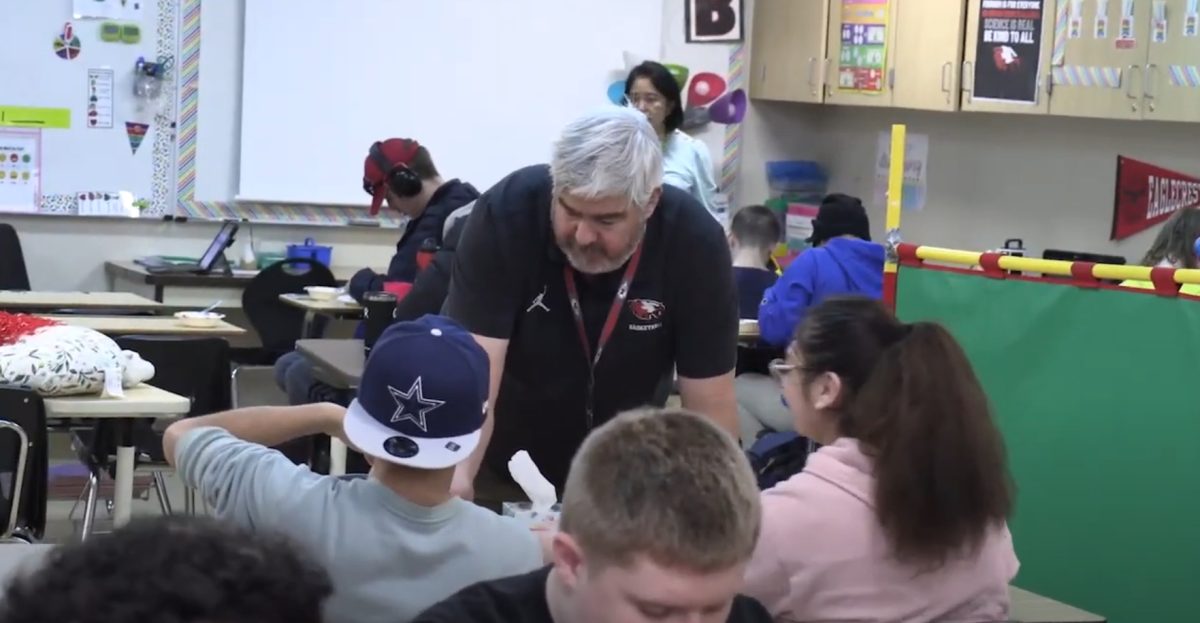Finals week is upon us, and the hallways are packed full of overworked and under rested students. As per usual at this time of year, student stress levels are through the roof, and for good reason. Final exams typically encompass all of the material introduced in class this year, and often account for hefty percentages of a student’s final grade. So it’s no surprise that Eaglecrest students are worried about the potential outcomes of their tests.
But what often goes unnoticed this time of year is the other side of the equation: our teachers. Just like students, they spend weeks and sometimes even months preparing for the dreaded finals week.
“I make review guides and plan out different review activities to help students prepare,” says EHS math teacher Caitlin Closs. “I create a final exam based on the work that we’ve done, and work with other people who teach the same classes as me so that we can create a final that we all will use.”
For most teachers, creating a final exam is a long process. They often start developing the tests months in advance, and review them over and over again to ensure that the content is fair.
“I want to make sure that everything is being assessed that’s fair for the students,” says Gayle Hume, an AP government and Reading and Writing teacher. “So I go back through and make sure that the things that are on the final are things that we’ve done well in class, that [the students] have demonstrated good learning on in class, and that they have enough time to get through everything they need to get done on their final.”
But perhaps the most stressful aspect of finals week is the grading itself. Once exams are officially over, teachers have a short and stressful time period to look over every student’s work and put grades into Powerschool. For teachers that give essays or other assignments that must be graded by hand, the days following finals week are a hectic blur of nonstop grading to meet the deadline.
“I would say the most stressful part is wanting to get everything done in a timely manner and making sure that students have their grades back and all their work in so they know what to expect,” says Ms. Closs.
With all of the anxiety-inducing tasks and obstacles that come with finals week for both teachers and students, some wish that we could just skip out on final exams altogether. Most students find the pressure to do well on their exams to be overwhelming at times. Several teachers agree, arguing that big tests can put unnecessary strain on students. Some teachers support the idea of a culminating project, but oppose the concept of the large-scale exam that they are forced to give.
“I think it’s a good idea to have one experience that shows everything [students] learned over a semester, but maybe not necessary in that it’s just a really big test,” says Spanish teacher Jessica Laughlin.
However, final exams can provide benefits for students, especially if they plan on going to college.
“I think it’s necessary preparation for people who are college bound,” says Ms. Hume. “That’s going to be a big part of their grades in college, so they need to try it here, where it’s safer.”
Overall, final exams are a frantic three days in which students cram to score well on their tests, and teachers struggle to ensure that every student is taken care of and every grade can make it to the gradebook in time. For most teachers, the mental health and preparation of their students is the first priority.
“Your teachers are rooting for you,” says Ms. Hume.
For teachers, creating and grading their class exams is often a stressful and complex task, and most students don’t recognize the hard work that goes on behind the scenes. But students aren’t the only ones that may struggle during finals week, and it’s important to give our teachers the appreciation they deserve.








